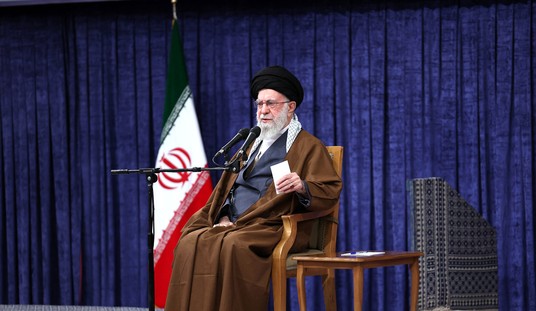The 2008 campaign diary Game Change: Obama and the Clintons, McCain and Palin, and the Race of a Lifetime by John Heilemann and Mark Halperin is more gossipy than analytical (“What an a–hole,” Hillary Clinton is overheard muttering about Barack Obama. “Am I the only one who sees the arrogance?”). But once the initial round of sampling its many delightful tidbits is over it may be time to question some of the larger issues implicitly raised by the book. The authors, being shoe-leather reporters, often seem to miss important implications. One of them is: What role did race play in Barack Obama’s presidential campaign?
Plenty. Though no one in the book ever suggests, or even implies, that skin color might make someone less qualified to be president (such a suggestion would indeed be absurd), and though the success of a highly liberal black presidential candidate in states John Kerry couldn’t win like North Carolina, Virginia, and Indiana would appear to prove that enmity toward blacks isn’t much of a factor in American politics, race was an important weapon — wielded by Barack Obama.
Game Change shows race helping Obama in significant ways. Opponents repeatedly become leery of running negative ads about him, fearing that bringing up entirely factual information about Obama could be interpreted as racist. Hillary Clinton, for instance, is seen pondering Obama’s less-than-crystal-clear position on the Iraq War. (Remember that in 2004, when the Iraq War appeared to be going well, Obama said, “There’s not much of a difference between my position on Iraq and George Bush’s position at this stage.” Obama also then said “I don’t know” when asked how he would have voted on the war authorization measure had he been a senator at the time.) When Obama is seen as pandering again, this time to conservative Democrats in Nevada, Hillary suggests running a TV commercial portraying Obama as a chameleon — and is immediately shot down. No mention of color can be made. “Oh Gawwwd,” she replies. “Give me a break.”
Similarly, no opponent of Obama felt safe mentioning his admitted cocaine use — because some might associate cocaine use with blacks, and such a mention would therefore be racist. During the primary season, even making an oblique cocaine mention by arguing that it was something the nasty Republicans would be sure to bring up in the fall (even though they didn’t) was seen, by the Clinton camp, as a PR disaster.
Even when Hillary Clinton correctly pointed out that it took a seasoned hand in D.C. politics, Lyndon Johnson, to turn Martin Luther King Jr.’s soaring equal-rights rhetoric into actual law, she found herself in trouble, “trying to dance delicately through a minefield of racial sensitivities,” the authors write. On cue, the New York Times cited the LBJ/MLK remark as evidence that Hillary “came perilously close to injecting racial tension” into the contest, practically branding her with a scarlet R. Then the Obama campaign put out a memo citing the comment, plus the mentions of Obama’s Bush-backing 2004 position on Iraq, “to suggest the Clintons were playing the race card,” write Heilemann and Halperin. A followup sentence is priceless: “To Bill [Clinton], the picture was all too clear. By accusing him and Hillary of slapping the race card on the table, the Obama campaign was doing exactly that itself.” You think?
John McCain scored his first hit on Obama when he ran a campaign ad called “Celeb.” It mocked Obama’s popularity and compared him to Britney Spears and Paris Hilton. (McCain lieutenant Steve Schmidt scuttled a version that also featured Oprah Winfrey saying, “Don’t politicize Oprah. She’s more powerful than you can comprehend, like Obi-Wan Kenobi.”) Obama counterattacked by arguing, essentially, that a commercial featuring two white celebrities was, in fact, racist. “What they’re going to try to do,” he told a campaign rally on the day the ad was released, “is make you scared of me. ‘You know, he’s not patriotic enough.’ ‘He’s got a funny name.’ ‘You know, he doesn’t look like all those other presidents on those dollar bills.’” Weeks earlier, Obama had made a similar remark: “They’re going to try and make you afraid of me. ‘He’s young and inexperienced and he’s got a funny name. And did I mention he’s black?’”
Obama aide David Axelrod argued that the “Celeb” ad painted Obama as undeserving of his success — the affirmative-action nominee. And he thought that McCain would be sure to hammer away at Obama’s race in other ways — such as by raising the issues of crime and taxes.
Far be it from a political campaign to mention such minor issues as those! John McCain, who never did say, “Did I mention he’s black?” or suggest that voters should choose the candidate with the less funny-sounding name, had specifically ordered his campaign not to air any attack ads featuring the Rev. Jeremiah Wright. Still, as Heilemann and Halperin put it, McCain “feared that innocence wasn’t a sufficient defense when it came to racial matters.”
Nope — innocence is no defense.









Join the conversation as a VIP Member